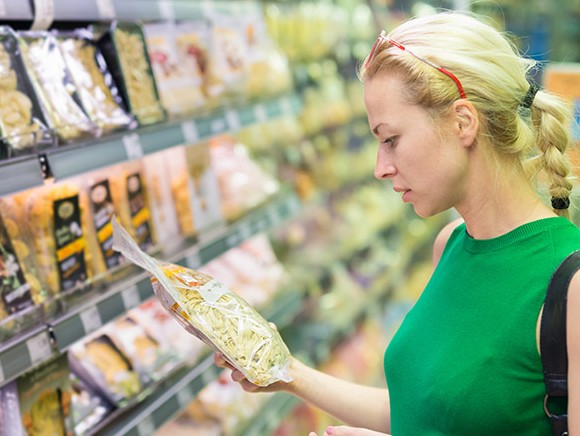
The European Parliament is calling on EU countries to reduce their food waste by 30% by 2025 and subsequently by 50% by 2030 (compared with 2014 levels). Parliament has introduced this target in draft waste legislation which was adopted in March.
Speaking at the European Parliament last month Annie Schreijer-Pierik, a European MP, advocated a chain-oriented approach to tackling food waste in Europe. “Not only food industry players and retailers but also consumers at home must become more conscious of the intrinsic value of food. Governments, retailers and manufacturers must all work together on shelf-life labelling.”
A label indicating the shelf life, including on fresh products for which it is not mandatory, encourages consumers to select the freshest products. The other products get left on the shelf and end up having to be thrown away. National authorities and stakeholders should do more to help Member States understand the meanings of the ‘Use By’ and ‘Best Before’ dates. Furthermore, it must become easier to donate food to food banks for people in need: “Financial and fiscal incentives to simplify and encourage the donation of food are urgently necessary, as too is successful application of the EU legislation regarding donor liability.”
Schreijer-Pierik regards the re-use of former foodstuffs and food industry by-products in the manufacture of animal feed as an essential weapon in the battle against food waste. “Dutch feed producers are leading the way in Europe in this area. They deserve more support and encouragement, including through more intelligent legislation. The same holds true for sustainable, ‘smart’ packaging materials which better preserve the quality of food products and prevent food from having to be thrown away.”
According to details recently announced by the Dutch government, the nation’s households wasted an average of 41kg of solid food (including sauces, fats and dairy products) per person in 2016. In 2010 that figure stood at 48kg, which indicates a difference of 7kg or 15%. “These results appear to be a step in the right direction, but we still have some way to go,” is how Corné van Dooren, an expert on sustainable food from the Netherlands Nutrition Centre Foundation (Voedingscentrum), reacted to the report. In 2010 Minister Verburg set a target for reducing food waste by 20% by 2015. The current achievements fall significantly short of that mark. Dutch State Secretary Martijn van Dam has called the target “unrealistic” and says the ball is in the court of the industry and consumers alike. To be continued!
Source: ©MateJ Kastelic/Shutterstock.com